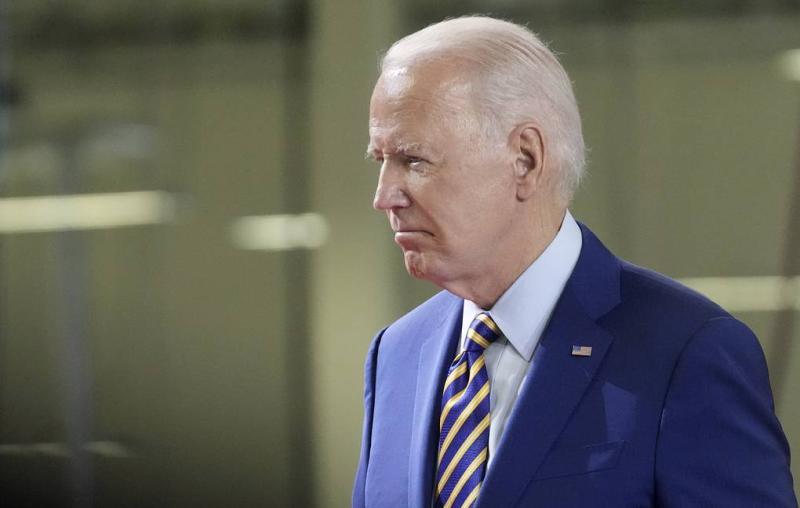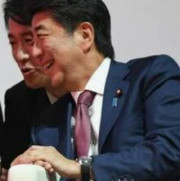
© AP Photo/Meg Kinnard/TASS
Top stories from the Russian press on Friday, July 7th, prepared by TASS
Sweden again fails to get NATO green-light as Turkey remains adamant with demands; US President Joe Biden to embark on European tour for bolstering anti-Russia course; and Brussels mulls EU expansion into Moldova, Ukraine, Georgia. These stories topped Friday’s newspaper headlines across Russia.
Izvestia: Sweden still knocking on NATO’s door as Turkey remains unrelenting
Stockholm has again failed to reach an agreement with Ankara on the latter’s approval of its NATO membership application. NATO Secretary General Jens Stoltenberg is hopeful that the face-to-face meeting between Turkish President Recep Tayyip Erdogan and Swedish Prime Minister Ulf Kristersson slated for early next week will help resolve the situation. However, experts told Izvestia that they believe that Sweden will not be green-lighted for admission to NATO any time soon in light of Turkey's fraught relationship with the United States.
Representatives of NATO, Turkey, Sweden and Finland met in Brussels on July 6 to discuss removing obstacles to Stockholm's accession to the alliance. During the final press conference, Stoltenberg stated that Sweden would not be able to join the organization before the July 11-12 summit in Vilnius, claiming that, even if Erdogan approved the application, Turkey would not have time to formally ratify it.
According to Izvestia, Hungary’s position also presents a serious complication. A few days ago, the Hungarian Foreign Ministry announced that Budapest would not approve Sweden's application until Turkey does. Turkish political scientist Hasan Selim Ozertem sees a possibility of the issue of Sweden's membership dragging on indefinitely.
The issue of NATO expansion is also affected by the fact that Turkey wants concessions on the delivery of American F-16 fighter jets, the newspaper writes.
Despite all of this, experts believe that Turkey will eventually approve Sweden's entry into the alliance. However, Magnus Oeberg, director of the Uppsala University Conflict Data Program (UCDP), believes that this is unlikely to happen in the near future.
Izvestia: Biden to embark on European tour to boost ties, promote 'anti-Russian alliance'
On July 9, US President Joe Biden will embark on a European tour, first meeting with King Charles III and Prime Minister Rishi Sunak in the UK, then attending the NATO summit in Vilnius, and finally arriving in Helsinki. According to US analysts interviewed by Izvestia, Biden is expected to focus on building both bilateral relations and the "anti-Russian alliance" during his trip. At the same time, the main focus of all talks will be additional military aid for Ukraine, especially in light of Kiev's underwhelming counteroffensive.
According to Saeed Khan, professor at Wayne State University in Detroit, the US president's visit to London and meeting with Sunak are aimed at deepening the US-UK "special relationship," which has seen better days of late. In this context, the US wants to show the UK that it remains committed to the transatlantic partnership.
Biden's European visit will also take place against the backdrop of the ongoing Ukrainian counteroffensive, which is proceeding slowly and ineffectively, according to Peter Kuznick, professor of history at American University. He sees growing pressure from the Global South, the Vatican and the United Nations for a ceasefire and negotiations. Therefore, Biden will try to stiffen the spine of the pro-Kiev alliance, he told Izvestia.
According to Jeremy Kuzmarov, editor-in-chief of Covert Action magazine, in addition to military support for Kiev, Biden and Sunak may discuss plans to increase sanctions against Russia and new tactics for isolating Moscow.
Kommersant: Brussels eyeing Georgia, Moldova, Ukraine as EU integration targets
This year, Kiev and Chisinau are awaiting decisions from Brussels on commencing EU accession talks for Ukraine and Moldova, while Tbilisi is seeking candidate country status for Georgia for eventual EU membership. All three countries see a high likelihood of receiving affirmative decisions. The European integration of Georgia, Moldova and Ukraine has been transformed from an abstract, seemingly impossible goal into a tangible prospect. Moscow will find it difficult, if not impossible, to compete for influence in these countries, Kommersant writes.
According to Kommersant's Moldovan government source with knowledge of EU integration issues, Chisinau's chances of ascending to the next level are very high. According to the source, Brussels knows that next year is an election year. The situation in Georgia is more complicated, however, with Tbilisi lagging behind both Kiev and Chisinau, and displeased with its last-place position, the newspaper writes. Tbilisi is now asking for what it failed to obtain in 2022: formal designation as a candidate country for EU membership.
Tornike Sharashenidze, professor at the Tbilisi Institute of Public Affairs, accentuated the positive regarding Georgia's prospects for European integration. "Time is on the side of European integration," he told Kommersant.
However, according to the expert, Georgia cannot completely break away from Russia because longstanding bilateral economic ties cannot be severed so easily. However, Sharashenidze noted that the development and strengthening of institutions in Georgia are heavily dependent on Western financial aid.
Kommersant: Russian tech sector offers partnership to Iran, even as Iranian IT booming
Russia and Iran have begun formal talks on agreements for cooperation in IT and telecommunications. The Russian Ministry of Digital Development (MDD) has offered Tehran technological assistance for the North-South Transport Corridor, including strengthening data transmission channels, exporting local software, and cooperating to improve postal links between the countries. However, according to Kommersant, Iran's IT sector is already undergoing rapid growth. Experts noted that the sector is well established and receives robust state support, leading to the question of whether there would even be any local demand for what Russian tech has to offer.
The MDD, major Russian IT companies, the Iranian Ministry of Information and Communications Technology and the Iranian Telecommunication Infrastructure Company (TIC) discussed the export of Russian IT solutions to Iran, as well as cooperation in cybersecurity and telecommunications. According to the MDD, "both sides are interested in implementing joint projects."
Iran's market for IT products is smaller than Russia's, but it has been growing rapidly over the past decade, with sales of local software now reaching $3-5 bln a year, according to Vladislav Onishchenko, a member of the Russian State Council's Economic and Financial Commission. It is difficult to assess the prospects for exporting Russian technologies, Maxim Bashkatov, director of the Center for Legal Development at the Center for Strategic Research, told Kommersant. "Iran itself has significant [homegrown tech] potential in terms of a number of solutions," he said.
Vedomosti: Analysts expecting average exchange rate to remain at 87-90 rubles to one dollar
The ruble/dollar exchange rate was one of the hottest topics at the recent International Financial Congress, although it was not listed among official program agenda items. The Central Bank of Russia attributed the unusual decline in the ruble rate to market conditions, in particular the trade balance, which fell significantly year on year. Analysts polled by Vedomosti do not expect the Russian national currency to strengthen. According to experts, the exchange rate will reach an average of 87-90 rubles per dollar in the second half of the year. At the same time, no one expects the average exchange rate to exceed 95 rubles per dollar in the period up to the year-end.
Alexander Shirov, director of the Russian Academy of Sciences’ Institute of Economic Forecasting, sees grounds for the ruble to strengthen. According to the expert, the level of 90 rubles per dollar is already quite critical from a macroeconomic point of view, as it has a significant impact on the competitiveness of Russian companies that rely on imported components.
At the same time, Vitaly Mankevich, chairman of the Russian-Asian Union of Industrialists and Entrepreneurs, believes that an exchange rate of 100 rubles to the dollar or slightly higher is entirely possible.
"On the one hand, a weaker ruble will benefit the state budget and exporters by providing them with more rubles. On the other hand, a rapid depreciation of the ruble is unprofitable for the Central Bank of Russia and the government because it increases devaluation and inflation expectations, as well as importer costs and financial stability risks," Sovcombank chief analyst Mikhail Vasiliev told Vedomosti.









